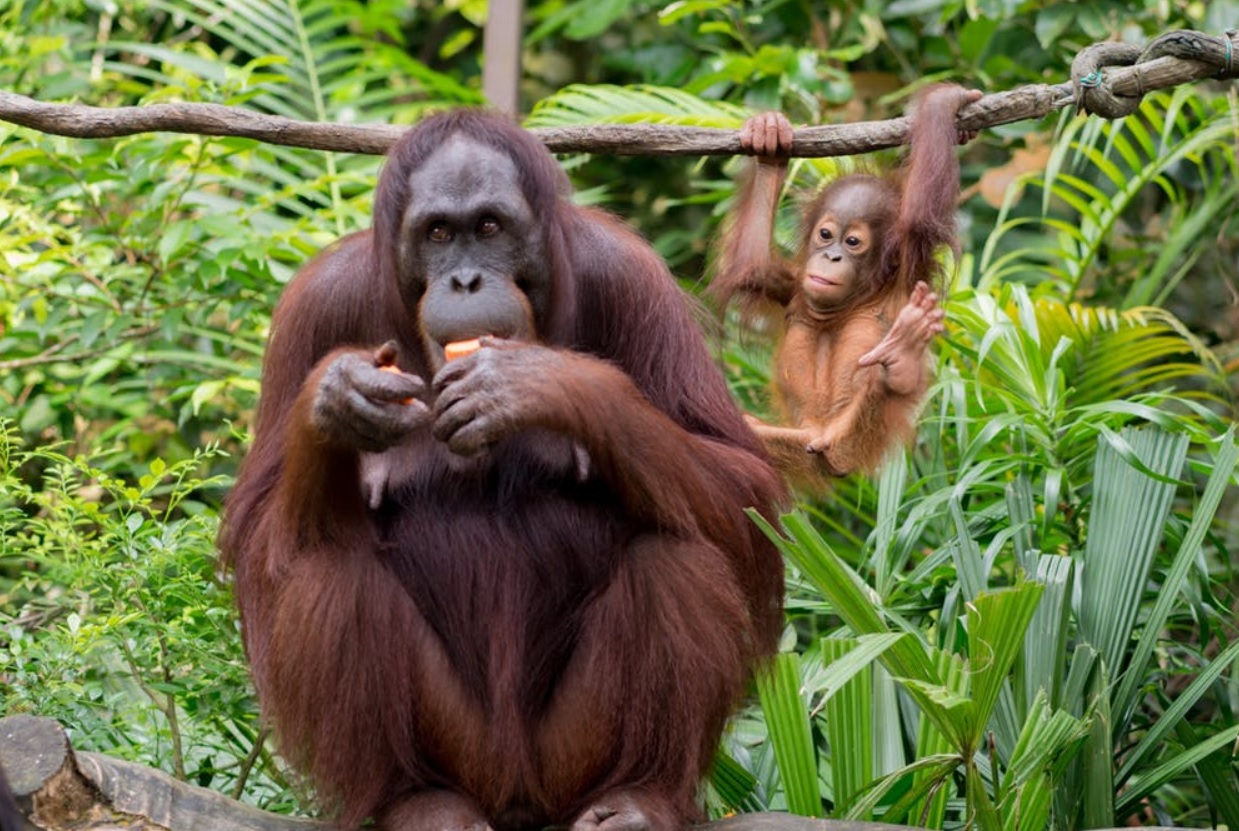Science News Roundup: Orangutan's use of medicinal plant to treat wound intrigues scientists; Scientists explore how to improve crop yields - on Mars and more

Following is a summary of current science news briefs.
Orangutan's use of medicinal plant to treat wound intrigues scientists
In June 2022, a male Sumatran orangutan named Rakus sustained a facial wound below the right eye, apparently during a fight with another male orangutan at the Suaq Balimbing research site, a protected rainforest area in Indonesia. What Rakus did three days later really caught the attention of scientists. Researchers on Thursday described observing how Rakus appeared to treat the wound using a plant known for its pain-relieving properties and for supporting wound healing due to its antibacterial, anti-inflammatory, anti-fungal and antioxidant qualities.
Scientists discover possible hammerhead shark nursery in Ecuador's Galapagos
A team of researchers has discovered a potential breeding ground for smooth hammerhead sharks off an island in Ecuador's Galapagos archipelago, in what would be a "very rare" sighting, the national park said in a statement on Thursday. The so-called "nursery" would be the first breeding site for smooth hammerheads, or Sphyrna zygaena, in the Galapagos if confirmed, the park said.
Explainer-The Eta Aquariid meteor shower: When is it and what to expect?
Meteors will be streaking across the sky as Earth passes through dusty debris in space left by Halley's Comet in the annual Eta Aquariid meteor shower, with peak activity in early May. Here is an explanation of this meteor shower.
Scientists explore how to improve crop yields - on Mars
For future human bases or colonies on Mars to be self-sustaining, a reliable source of home-grown food will be a must. It simply would be too costly and risky to rely upon rocket deliveries to meet the food needs of colonists. With this in mind, scientists are exploring ways to optimize space farming. In a controlled greenhouse at Wageningen University & Research in the Netherlands, researchers have now identified a way that shows promise for improving crop yields in simulated Martian soil, with different crops grown together in a method called "intercropping" pioneered by ancient Maya farmers.
(With inputs from agencies.)
ALSO READ
Science News Roundup: Scientists explore how to improve crop yields - on Mars; Explainer-The Eta Aquariid meteor shower: When is it and what to expect? and more
Science News Roundup: Scientists discover possible hammerhead shark nursery in Ecuador's Galapagos; Explainer-The Eta Aquariid meteor shower: When is it and what to expect? and more
Scientists discover possible hammerhead shark nursery in Ecuador's Galapagos
Fire breaks out at bamboo nursery in Gujarat's Navsari










